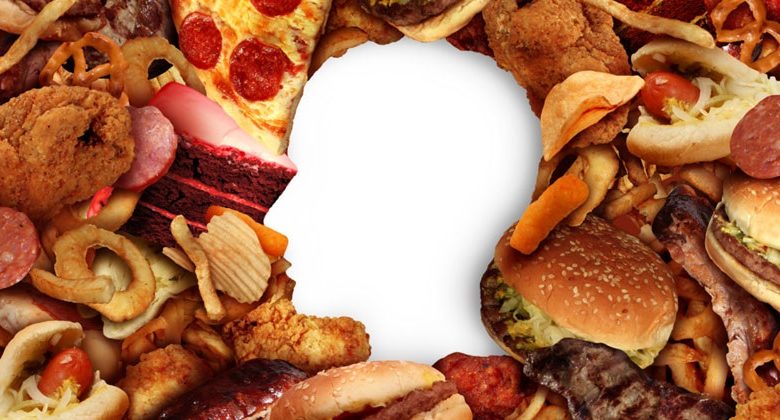
7 psychological tricks to enjoy food without falling into excesses.
These tips can help distract our brain and avoid everything that sometimes leads us to eat more than necessary.
The causes that lead you to eat more food than you really need can be many and varied: anxiety, sadness, nervousness, stress, and an intense social and family life… Whatever your case, don’t torture yourself too much. We have all pounced on food at some point. A binge a year doesn’t hurt…
Now, if this practice is repeated more often than you would like, you should take action on the matter. To begin with, you have to learn to differentiate whether your desire to eat is caused by physiological or emotional hunger. The first is more than justified, but the second is usually a response to certain emotional states and makes you gobble up more than you need. This behavior can lead to obesity and other health problems.
How to differentiate between emotional hunger and physiological hunger
Deciphering the reasons or emotions that lead you to eat impulsively is the key to controlling that uncontrolled appetite. That is where we have to direct our efforts.
“ Real hunger comes from the body, from the stomach, and only understands volume. If we learn to listen to our stomach, we will know if it is full, empty, or half full. It is a physiological sensation. What happens is that we have been ‘disconnecting’ from this sensation and we have let ourselves be carried away by the pleasure that eating provides”, explains Itzíar Digon, an expert psychologist in nutrition, mindful eating, and conscious eating. “ Emotional hunger is motivated by many other triggers: the smell or appearance of food, emotional discomfort or emptiness, stress, even the fear of hunger… We try to fill those emptinesses with the pleasure we receive from food. It’s a kind of patch that makes you feel good at first but later can bring guilt for not being able to stop. It can also lead to physical discomfort from overeating,” he adds.
How to distinguish if you are emotionally hungry
To learn to distinguish the types of hunger, you should look at the following aspects:
- Emotional hunger is sudden, while physical hunger is gradual and gradual.
- Emotional hunger is urgent, while physiological hunger can wait.
- Emotional hunger requires specific foods, while physiological hunger is open to different options.
- Emotional hunger is not satisfied by feeling full, while physiological hunger ends by being satisfied.
- Emotional hunger tends to lead to negative feelings in the end, while physiological hunger does not make you feel bad.
How to combat emotional hunger
Believe it or not, our brain is much more innocent than it seems. These little psychological tricks will help you “trick” him. Put them into practice and you will be able to convince him that you are not hungry.
1. Drink water
On many occasions, it is really difficult to differentiate the sensation of hunger and thirst. The mechanisms that regulate both sensations are the same, so our body may be sending us the wrong signals. When you think you’re hungry, before eating, take a few sips of a glass of cold water. If the feeling of hunger decreases, it was about thirst. If, on the other hand, this feeling persists, it is time to eat. Eat a healthy snack to kill the bug. Don’t jump on food if it’s not mealtime.
2. Healthy food in sight
It is a fact that we eat through our eyes. The visual stimulus is the one that most influences when choosing the foods that we are going to put in our mouths. That is why many psychologists recommend leaving the healthiest foods visible and placing them in an appetizing way. On the contrary, you should hide the chips, the sweets, and the ultra-processed sins in cabinets that you do not have much access to. Or directly, not having them at home. This simple strategy will mean that if you feel hungry, there is a greater chance that you will take an apple instead of a less healthy and much more caloric snack.
3. Imagine eating before you eat
It may seem ridiculous at first glance, but it is scientifically proven that imagining yourself eating something before eating it makes you eat less when food is in front of you. This curious phenomenon has its explanation in the release of dopamine in your brain.
When you experience intense emotional pleasure, the brain releases dopamine. When you think about that dish that you want so much, you start to feel good and your brain starts to secrete this substance. After a while, your body gets used to it, causing the response to dopamine to decrease. What happens then? That when you put in your mouth that delight that you had imagined, you no longer enjoy it in the same way. This moment is less pleasant and you stop eating before. The emotional response is not as strong and you eat much less or it is easier to resist that culinary whim.
4. Small plates and tall glasses
The crockery you use greatly influences the information your brain receives about the food and drink you are about to drink. It’s logic. If you put the same amount on a large plate and a small one, the perception changes completely. With the large plate, you will have the feeling that you have eaten less than with the small one. The chances of repeating the portion increase in the first case. This little “visual deception” will help you reduce portions and you will eat fewer amounts.
5. Eat without distractions
Eating while doing something else puts you on “automatic pilot” and you lose track of what you’re eating as well as disconnecting you from your body, so you don’t even notice when you’re full. Sit at the table and pay attention to what you put on your plate. It is the only way to eat consciously. Experts recommend spending at least 30 minutes eating and chewing between 5 and 10 times more food than we usually do. You will be satiated before and you will make the digestion better.
6. Enjoy the food
Conscious eating consists of eating slowly, smelling the dishes, and knowing what ingredients each dish contains and how they have been transformed. In short, enjoy every bite.
7. Treat yourself
Who has not given himself over to a good piece of pizza or cake? It’s okay, we all have those days. Food serves to give us energy and make us enjoy, not to make us feel guilty. If you fancy a treat, give it to yourself. Healthy eating is a long-term, long-distance race, not a sprint.


